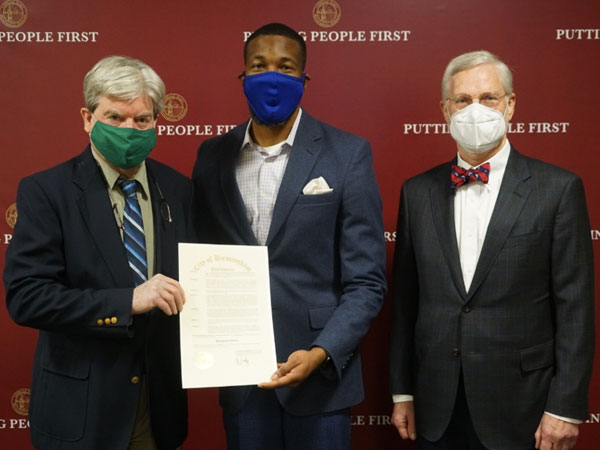
After his birth in Birmingham, AL, Dr. Wilson spent his childhood in Mobile, AL before attending the University of Alabama to pursue both a Bachelor and Master of Science in Biology. Following his graduation from the University of Alabama, Dr. Wilson received his Ph.D. in Biology at Harvard University in 1955. He then joined Harvard’s Biology and Zoology faculty in 1956 and continued his teaching career at Harvard through three different endowed professorships until 1997. Dr. Wilson continued educating as an emeritus Professor at Harvard from 1997 until his death.
Dr. E.O. Wilson, was considered the “father of biodiversity” and a gifted spokesperson for science. Best known for his discovery of the first colony of fire ants in the United States in Mobile at age 13, Dr. Wilson also published over 30 books, 16 of which were published after Dr. Wilson turned 70 and two of which received the Pulitzer Prize for non-fiction. His long career “transformed his field of research - the behavior of ants - and applied his scientific perspective and experience to illuminate the human circumstance, including human origins, human nature, and human interactions,” according to the E.O. Wilson Biodiversity Foundation.
It was in Mobile that Dr. Wilson became the world’s authority on ants following a childhood fishing accident in Mobile, Alabama that restricted his eyesight to “little things.” His first of several hundred career-publications on ants reported the invasion of fire ants near the docks in Mobile, Alabama. In addition to the biology of ants, his major lifetime contributions to conservation biology and evolution included the fields of Island Biogeography and Sociobiology, the latter being the study of the genetic basis of social behavior in animals.
Dr. James McClintock, who knew Dr. Wilson personally, and Dean Paul Erwin, with guidance from the CEO of the E.O. Wilson Biodiversity Foundation at Duke University, Dr. Paula Ehrlich, wrote and coordinated the signing of this proclamation by Mayor Randall Woodfin representing the City of Birmingham.
"Wilson inspired the biologist in all of us…the power of curiosity, what it means to literally and figuratively look under the rocks," said Dean Paul Erwin. "I view E.O. Wilson’s work on biodiversity and the impact of climate change as having direct implications for the impacts of climate change on human health,” he said. “We humans are not apart from what happens to other species, animals and plants alike.”
Dr. James McClintock, Endowed University Professor of Polar and Marine Biology at the UAB College of Arts & Sciences, and author who considered Wilson a mentor, said Wilson “inspired in me a deep fondness for his true home, the South. Every chance he got he would nudge me to continue to reach out across Alabama and speak to the preservation of its uniquely rich biodiversity.”
Despite becoming a world-famous Harvard scholar, Dr. Wilson never lost sight of his connections to and love and advocacy for the state of Alabama, its peoples, and its exceptional natural biodiversity.